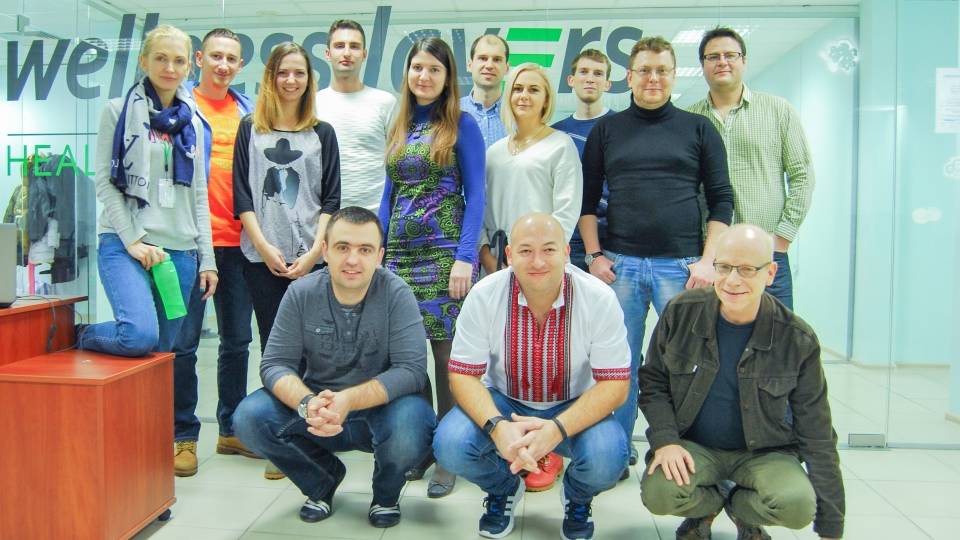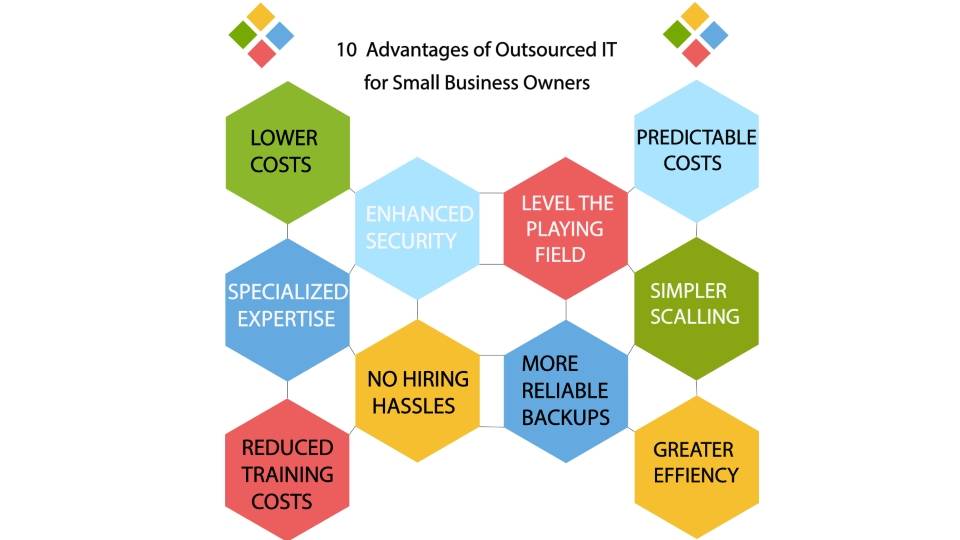
Guide for Using the Dedicated Team Outsourcing Model
A business idea might be innovative, but it’s worth nothing if there’s nobody on
hand to make it work.
Today companies worldwide are starting to understand that a lack of talent may
really compromise their future growth. The tech industry has become wary of the
idea of outsourcing. But there’s already a difference: where previously
outsourcing was used simply to cut expenses, now more and more firms are
enjoying other advantages of this team-building method.
The recent Global Survey 2016 by Deloitte shows that outsourcing is now emerging as the key to innovation by solving capacity issues, creating global scalability, and providing access to intellectual capital.
This global shortage can force tech companies to open new markets and hire
more contractors from abroad to seal the existing gap.
The relatively new, dedicated development team model - where external specialists become a part of the in-house staff - looks set to become a popular option for years to come.
The key to its success - it gives some sort of flexibility. The product can be shaped on the go; the hired team is as mobile as the in-house staff. It can also grow as the scale of a project increases. The drawback, however, is that a client must invest a lot of time into management, taking an active role in communication and negotiation.
Read about managing outsourced IT functions
All in all, a dedicated team solution can be handy and I am going to share a few tricks for how to get the most out of it.
Some things to consider before you start looking for a dedicated development team
When there’s a need for additional team members, the first thing you do is draw up a solid list of roles you need to fill. The hiring process is made much easier by composing a clear description of the roles. The search for candidates should closely follow the job descriptions provided.
At this stage, it’s pretty useful to know which positions to start with while hiring the dedicated software development team.
Forming a team's core by selecting the managerial specialists first might be a good idea. Although the speciality of managers and the number required depend on the specific company's needs, they are always the key figures.
Read how to build trust and form high-performance teams
This global shortage can force tech companies to open new markets and hire more contractors from abroad to seal the existing gap.
Here are some of the professionals you might want to hire in the early stages:
- Team leader and/or lead developer. Here you are looking for someone who will guide the whole team and monitor its results. Team leaders should have a mixture of two sets of skills - managerial and software development. This ideal candidate usually knows a couple of programming languages and has excellent spoken and written communication skills
- Project manager. These are the people with a strong engineering or technical background, who are going to drive IT projects from definition to deployment. This specialist must have strong facilitation skills to hold design, progress, and status meetings and make use of them
- Senior developer. Senior positions are taken by software development gurus. They possess high-level programming skills and are capable of inspiring, coaching, training, and developing other team members
A person who’s working on the job descriptions for the future dedicated software development team should include all seemingly small details, namely the hours for which the dedicated team employees are expected to be available online and the company culture that they will be expected to adopt.
Then comes the point when you have to decide who to trust. Many startups at
this stage tend to pin their hopes on big companies with expansive
portfolios, and there are benefits of such an approach, but there are also
significant drawbacks.
Establishing the hours when the employee must be online helps keep the lines of communication open across different time zones. Also, when describing the culture of your workplace, be sure to specify what kind of personality you’re looking for.
It’s most likely that the team will continue to grow as the project progresses, thus, it may be wise to try to foresee possible future roles within the team.
Since the managerial staff need to be hired first, the extended development team will require more and more engineers and developers. It has to be properly discussed: raising this point at the start of discussions with dedicated development team providers allows you to agree on discounts for every additional team member and to outline the prospect of partnership with a particular provider.
Choosing the right scale of external development team provider
Then comes the point when you have to decide who to trust. Many startups at this stage tend to pin their hopes on big companies with expansive portfolios, and there are benefits of such an approach, but there are also significant drawbacks.
Big companies provide a lot of security, documentation and time, which is useful if a project is expected to be a complex one.
Another nice thing about large companies is that they have probably done something similar before and have an established way of completing various sorts of projects.
Tech companies generally opt for Eastern Europe, Asia, or their own country;
it all depends on the expertise needed. The cornerstones of any outsourcing
partnership, however, are all the same: culture, customs, qualifications,
and the number of specialists available on the market.
Of course, it all depends on the type of project, but often cooperation with big players takes more time from start to finish. Corporations manage a lot of documentation, plans, etc.
Other downsides include the rather high cost of services and the quite heavily regulated communication.
So the scale of a startup’s venture affects the decision: corporations may pay less attention to small clients, while small dedicated software development team providers tend to be more focused on every project, taking a more personal approach with each customer.
The smaller provider can easily give access to every process of the development and be open to any adjustments to the process.
Having around 30 members of staff, they will care for each customer more, because they will want to build their customer base.
Suitable location for hiring an external team
Once you have decided which parts are needed, it's time to look for the perfect fit, narrowing the search down to a suitable location.
Tech companies generally opt for Eastern Europe, Asia, or their own country; it all depends on the expertise needed. The cornerstones of any outsourcing partnership, however, are all the same: culture, customs, qualifications, and the number of specialists available on the market.
It can be more convenient to find partners somewhere within the region where the business is based, because time zone difference is less of an issue. The communication can run more smoothly this way. Others think differently, however, as they find a way of benefiting from the difference by setting the development in such a way that it literally goes round the clock across different time zones.
Read about Kharkiv as a perfect location for offshore IT outsourcing in Ukraine
So, it’s a subjective decision, but as soon as it’s made, it’s time to look for candidates to form a dedicated engineering team.
Catalogues, tech journals, social networks, personal acquaintances, and media publications - any of these can work. It may be sensible to zero in on the companies that invest in their presence across different platforms.
Early adopters are integrating IoT into a broad spectrum of technologies and business processes, many of which intersect with commonly outsourced business functions: IT support, facilities management, and enterprise resource planning.
Collecting information about your potential outsourcing partner
Judging a hotel based on the photos on its website can be tricky. You see a nice picture before booking, but the place itself can be disappointing.
Dedicated software team services are pricier and more complex than renting a hotel room, so the level of frustration if something goes wrong can be really damaging.
Thus, it could be a wise idea to pay potential partners a call. This will give you a chance to see the company’s infrastructure, interview people yourself, talk with their managers: generally, to see if the promises coincide with reality.
The most reliable way to reveal the truth is to talk, asking precise
questions. You can get many things out of the dedicated team provider using
this simple tool.
Besides, a dedicated team provider is responsible for headhunting, and the visit will also give you a chance to talk with the outsourcer’s human resource specialists personally to make sure they’re masters of their craft.
This is important, because even when a vendor doesn’t have specialists itself , it can still be a promising partner if its HR is reliable and the market is rich in talent.
Sometimes outsourcing providers cover the travel expenses for such an inspection. But even if they don’t - flight tickets are cheaper than the extra cost of a bad hire.
Discussing the matter with the dedicated team provider
These days anyone can write anything on the internet. A naughty outsourcer could notice a new service on the market and decide to add it to the list of services it provides, while having no relevant expertise whatsoever. Its team may not even know exactly what to do when an order for this service comes in.
The most reliable way to reveal the truth is to talk, asking precise questions. You can get many things out of the dedicated team provider using this simple tool.
The cost of the whole project should be well-explained: the provider must be asked to give a cost breakdown for the team engagement with each employee’s salary evaluation.
Read about experience with a dedicated development team from Ukraine
While companies are still developing, they can grow, which means that the number of employees - both internal and external - can double. That’s why it’s prudent to discuss possible scaling discounts.
It may be interesting to talk with the provider’s previous customers, as this can reveal the pros and cons of a potential partnership.
After everything’s weighed and settled, there’s only one more little step to make: to draw up a version of a probable contract (and don't be afraid to turn to a third-party firm for direction).
Vendors’ templates of IT outsourcing contracts are believed to be subjective.
A customized contract should have performance metrics that will prove the provider is living up to the terms of the service-level agreement. Thus, the outsourcer's demonstration of progress is among the most critical terms a client should seek.
Let’s wrap it up
The dedicated software development team is another model that proves Marshall McLuhan’s global village concept, and it certainly gives new opportunities for businesses.
Large tech companies that are working on complex projects have the option to hire several providers, assigning different tasks to all of them. This reduces the risk, saves money and speeds up the development.
Small firms, including startups, can benefit from the flexibility of this approach. Hiring a dedicated remote team at the beginning of their venture can eventually help pivot the initial idea into something really exciting: the model solves the problem of a lack of in-house specialists in a specific area and saves money. Companies like Slack, Skype or Opera outsourced development during the startup phase.
The benefit of hiring dedicated external staffers is that they have not only the expertise to foster development, but also the motivation, for they work with one client on long-term projects.
Written by Denys Krasnikov



